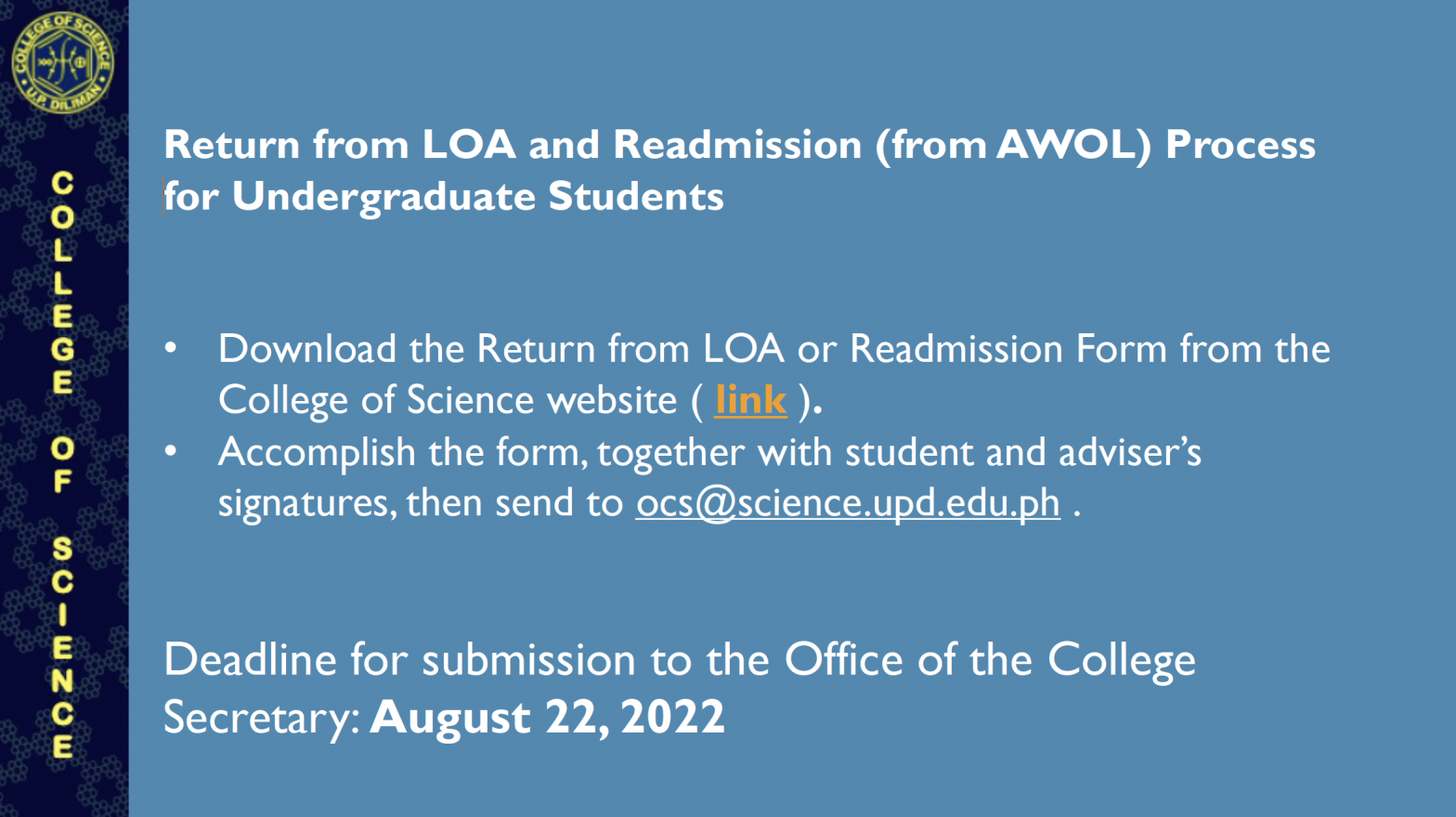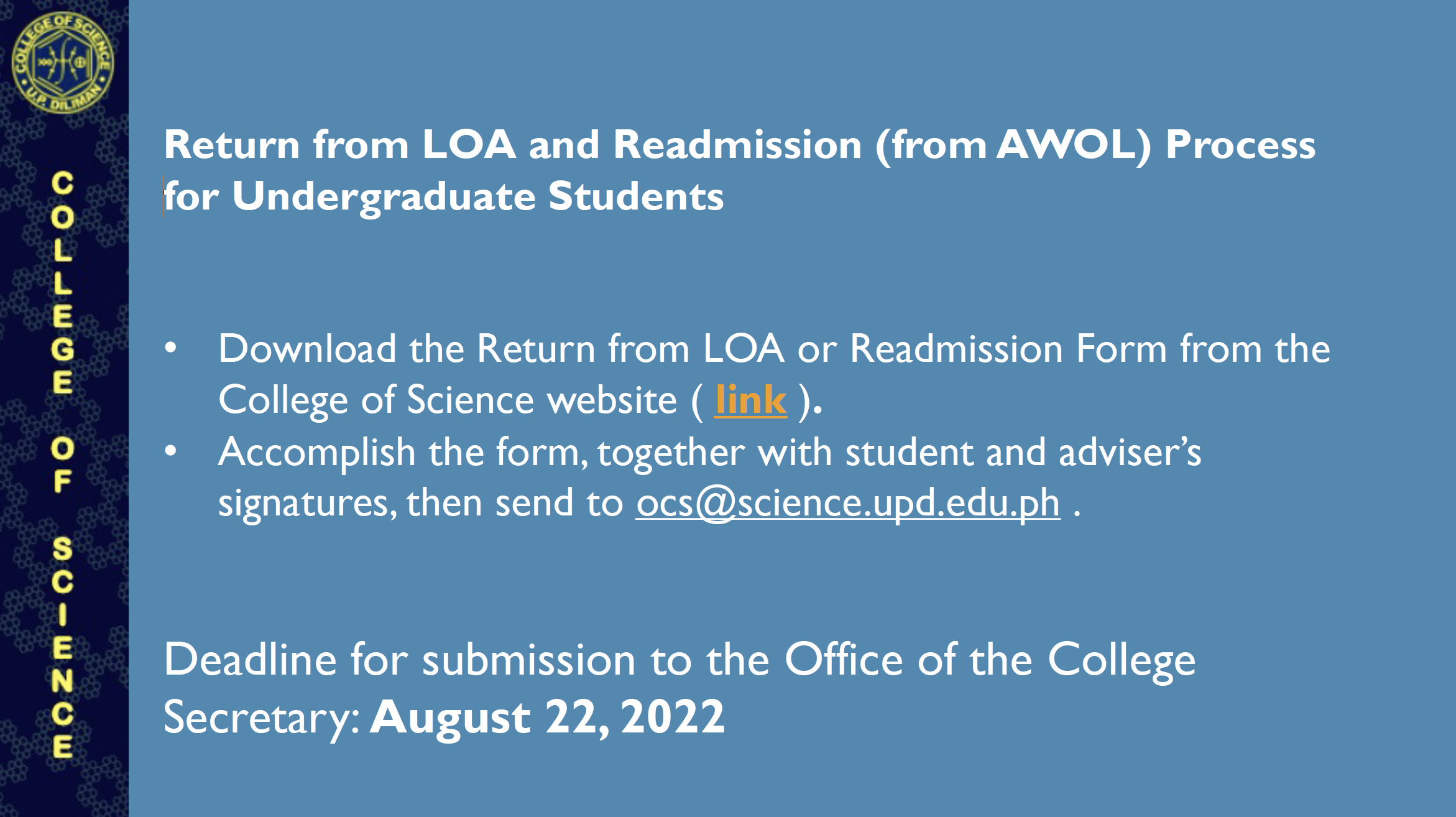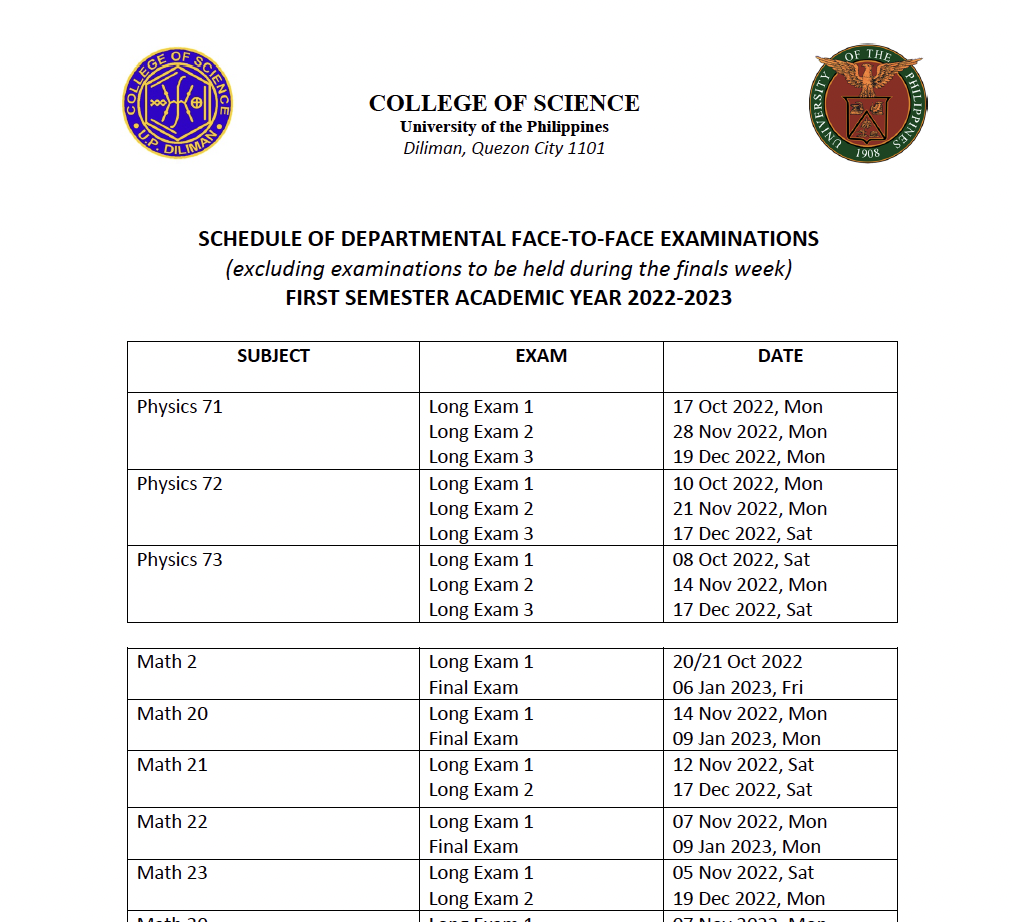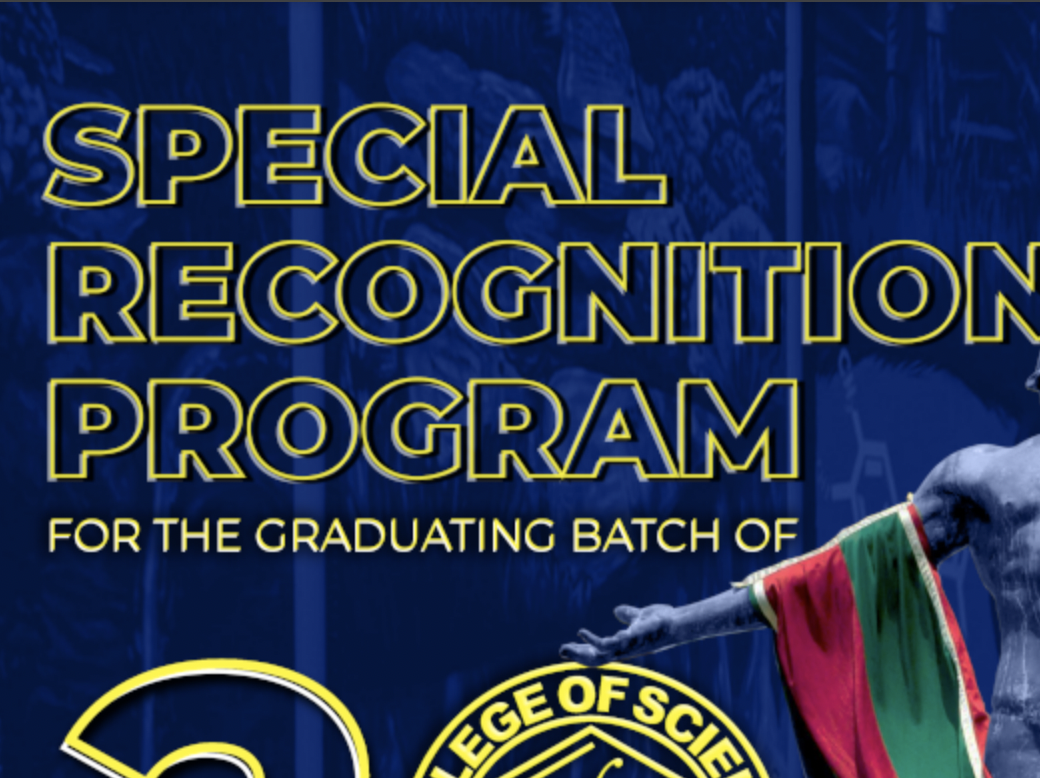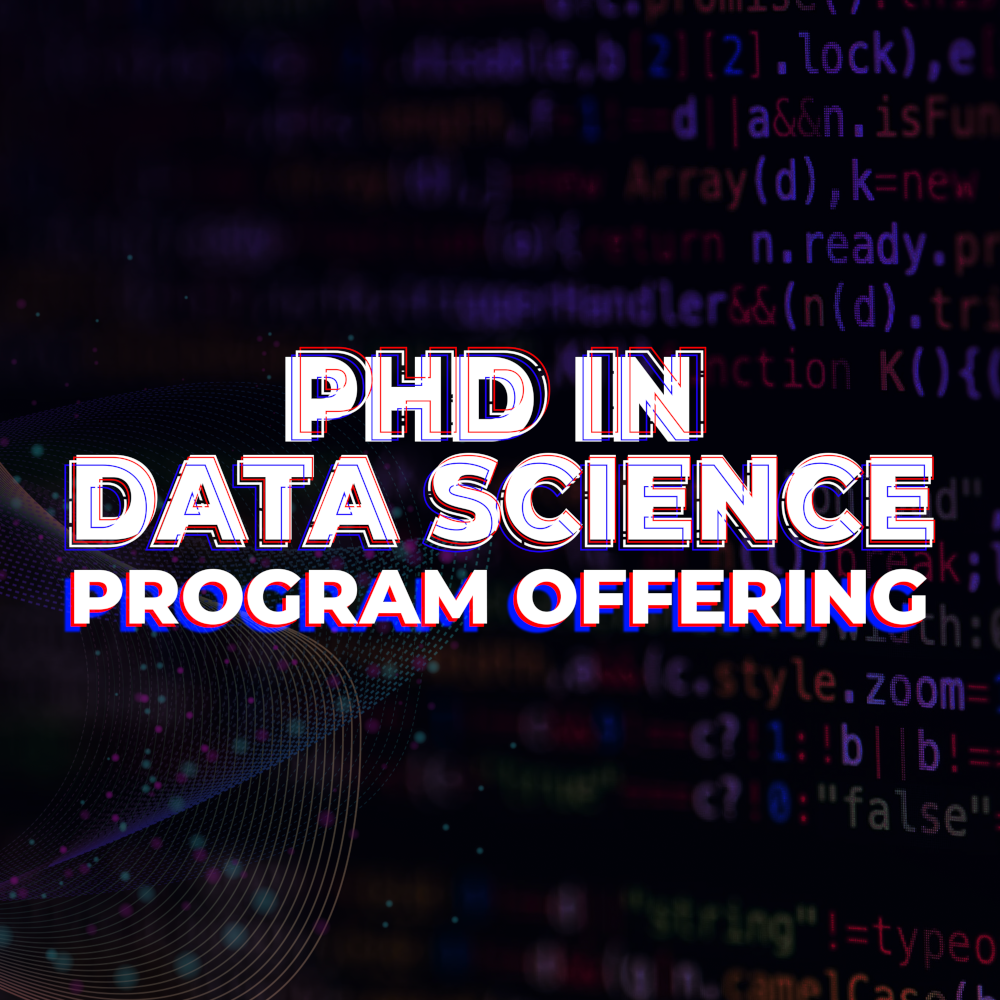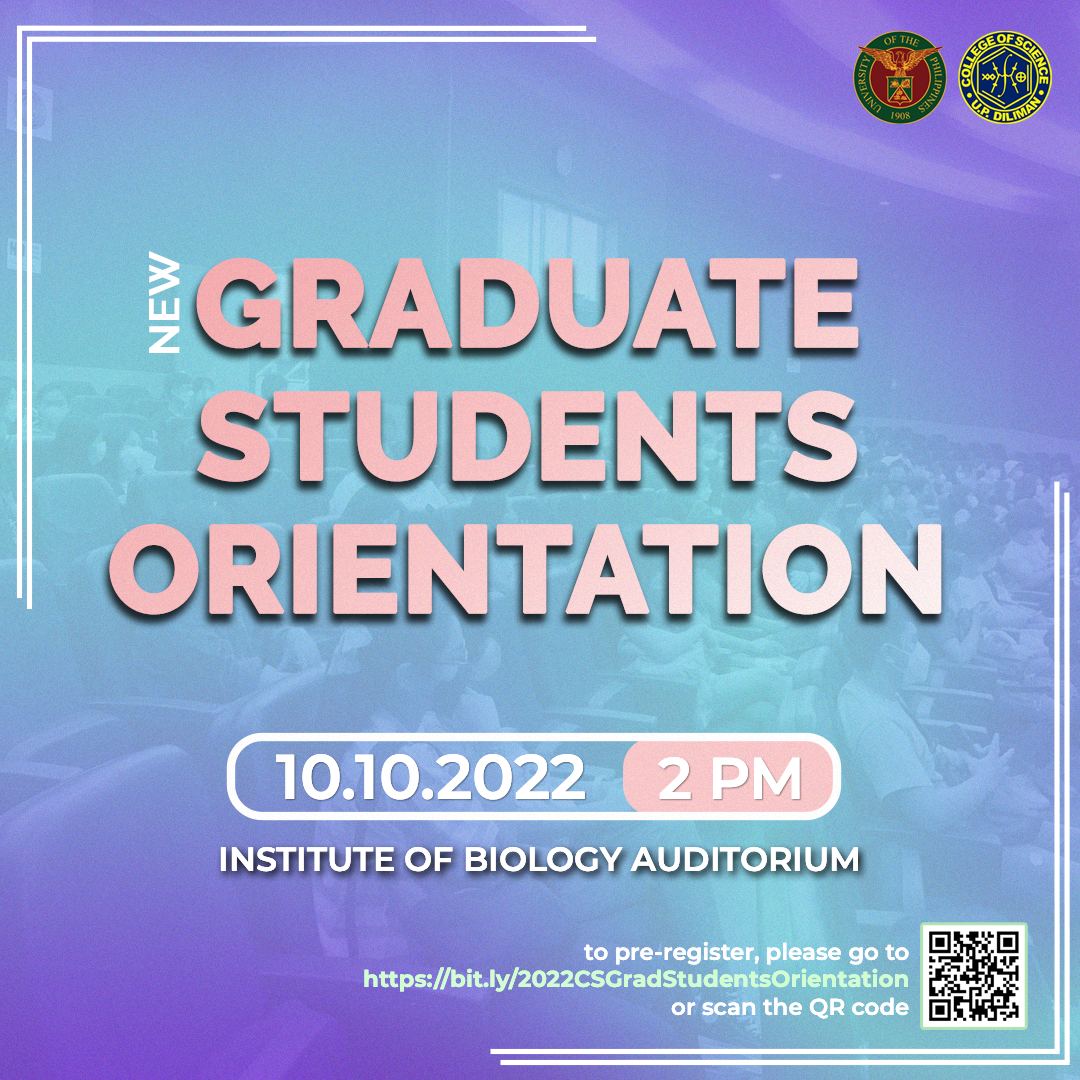
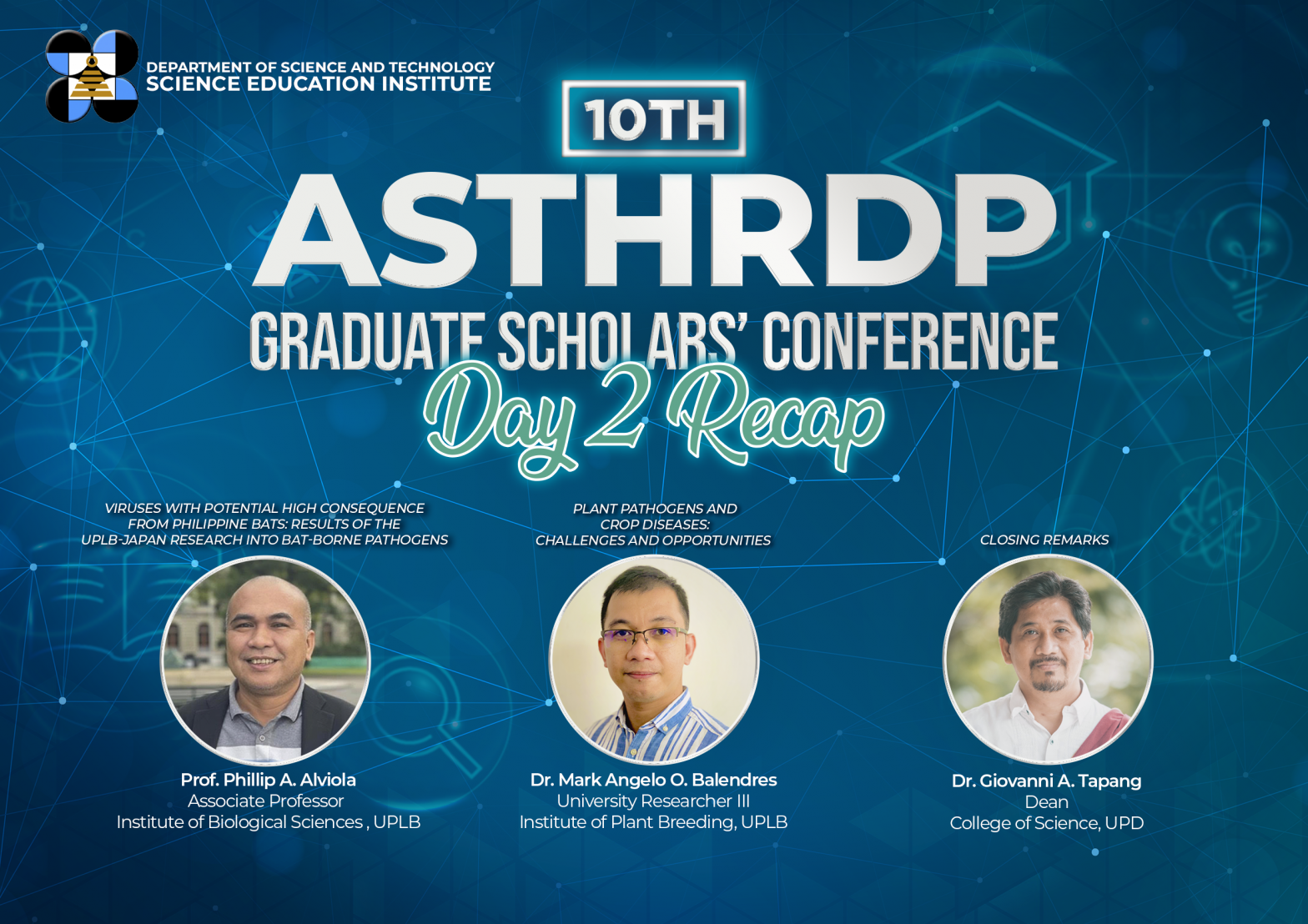
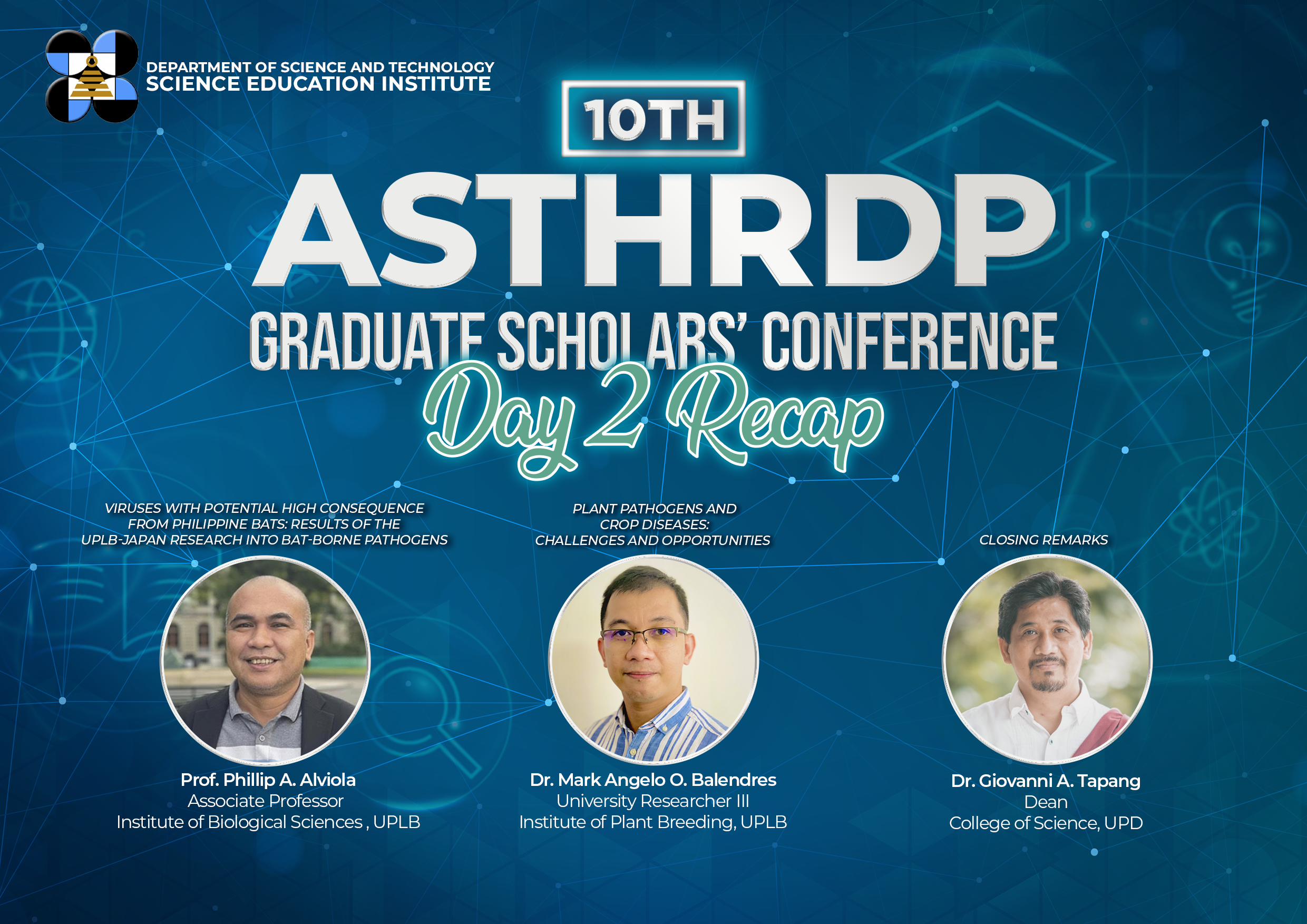
10th ASTHRDP Conference Summary of Proceedings Day 2 – September 23, 2022
In the first plenary session of the day, UPLB Institute of Biological Sciences Assoc. Prof. Phillip Alviola discussed his extensive years-long research into bat-borne diseases and the implications of his work on the present and future pandemics. His talk, entitled, “Viruses with potential high consequence from Philippine bats: Results of the UPLB-Japan research into bat-borne pathogens” noted the existence of several virus families common to bats in the Philippines that are very closely genetically related to human-infectious viruses being monitored by the World Health Organization. Apart from ebola and coronaviruses, hantaviruses were of particular concern because of their mortality rate of up to 75% – higher than the SARS-CoV-2 virus and “the stuff of nightmares,” Prof. Alviola warned. Moreover, he said that the widespread distribution and migration patterns of bats in the country means a high potential for outbreaks in the future, given the right circumstances. He and his colleagues are currently undertaking an in-depth multidisciplinary study of bats – including their habitat, migration patterns, and interactions with humans – to help anticipate possible future outbreaks and pandemics.
The last plenary presentation, by UPLB Institute of Plant Breeding Researcher Dr. Mark Angelo O. Balendres, entitled, “Plant pathogens and crop diseases: Challenges and opportunities” underscored the importance of crop protection and management in meeting the nutritional needs of the continually burgeoning global population, which the UN estimates to reach 9.7 billion people by 2050. Dr. Balendres pointed out the need for a better appreciation and public understanding of the various best practices surrounding plant health in farms, such as non-chemical pesticides and crop management methods: “We need more communication and awareness at the community level, particularly at the level of farmers. And we need more research on non-pesticide intervention,” he said. However, Dr. Balendres lamented the lack of skilled plant pathology researchers to address these concerns – a glut that was further aggravated by the COVID-19 pandemic, which severely limited opportunities for fieldwork and hands-on experience. However, he expressed hope that improved public communication and encouragement to pursue crop protection even at the high school level could help grow the research community and enable it to rise to the challenge.
The two-day ASTHRDP Conference was capped by a formal ceremony honoring scholars from across the country with refereed publications, as well as the announcement and awarding of the winners of the Oral and Poster Presentations at the Conference.
The day ended on a high note with closing remarks from UP Diliman College of Science Dean and 10th ASTHRDP Conference Chair Giovanni Tapang, who congratulated the attendees not just on their individual research but also on the community they had built through their hard work: “This years’ celebration would be impossible without you, our scholars – past, present, and even the future. We thank you all for sharing this with us… Padayon!” Dr. Tapang concluded.
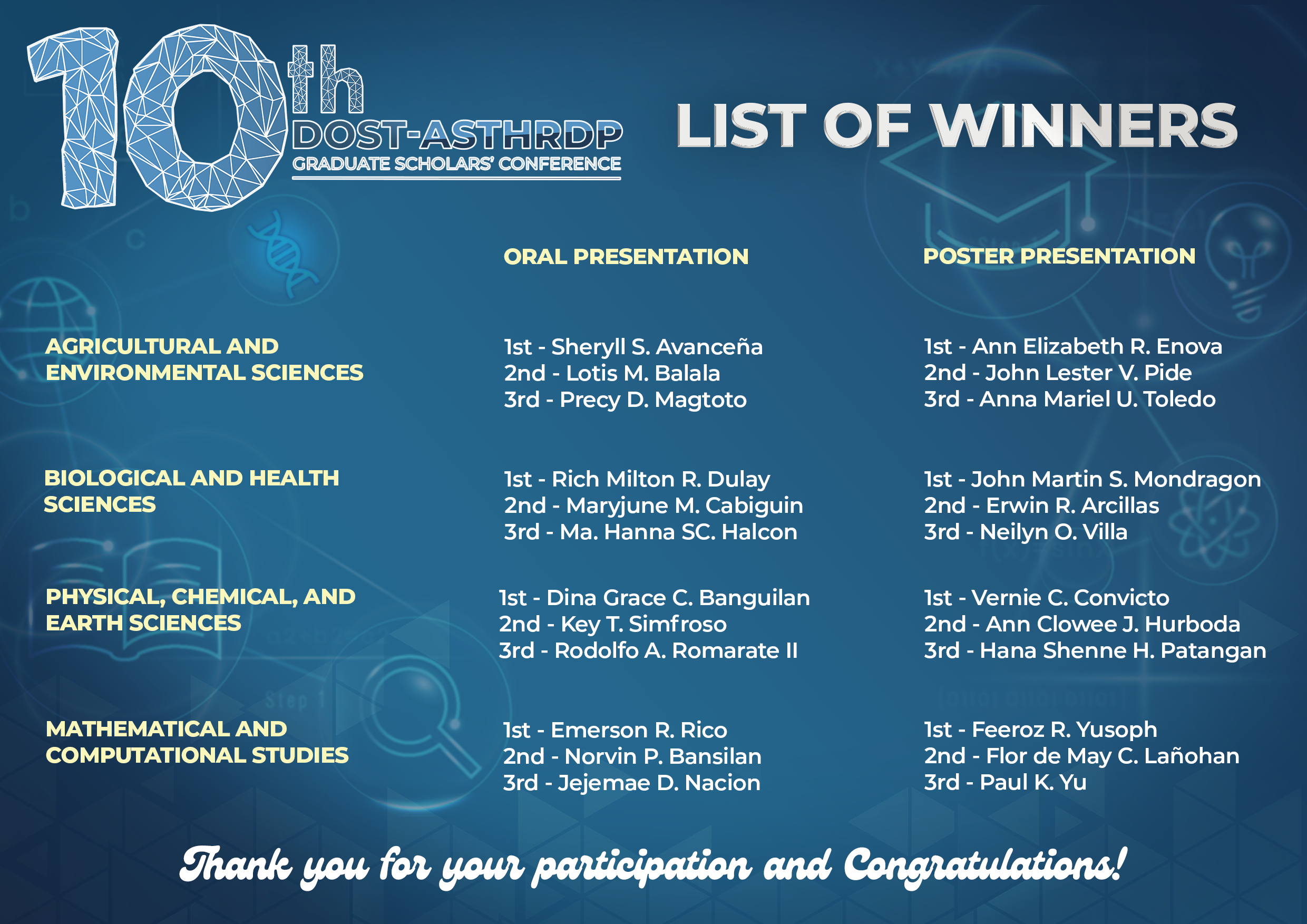
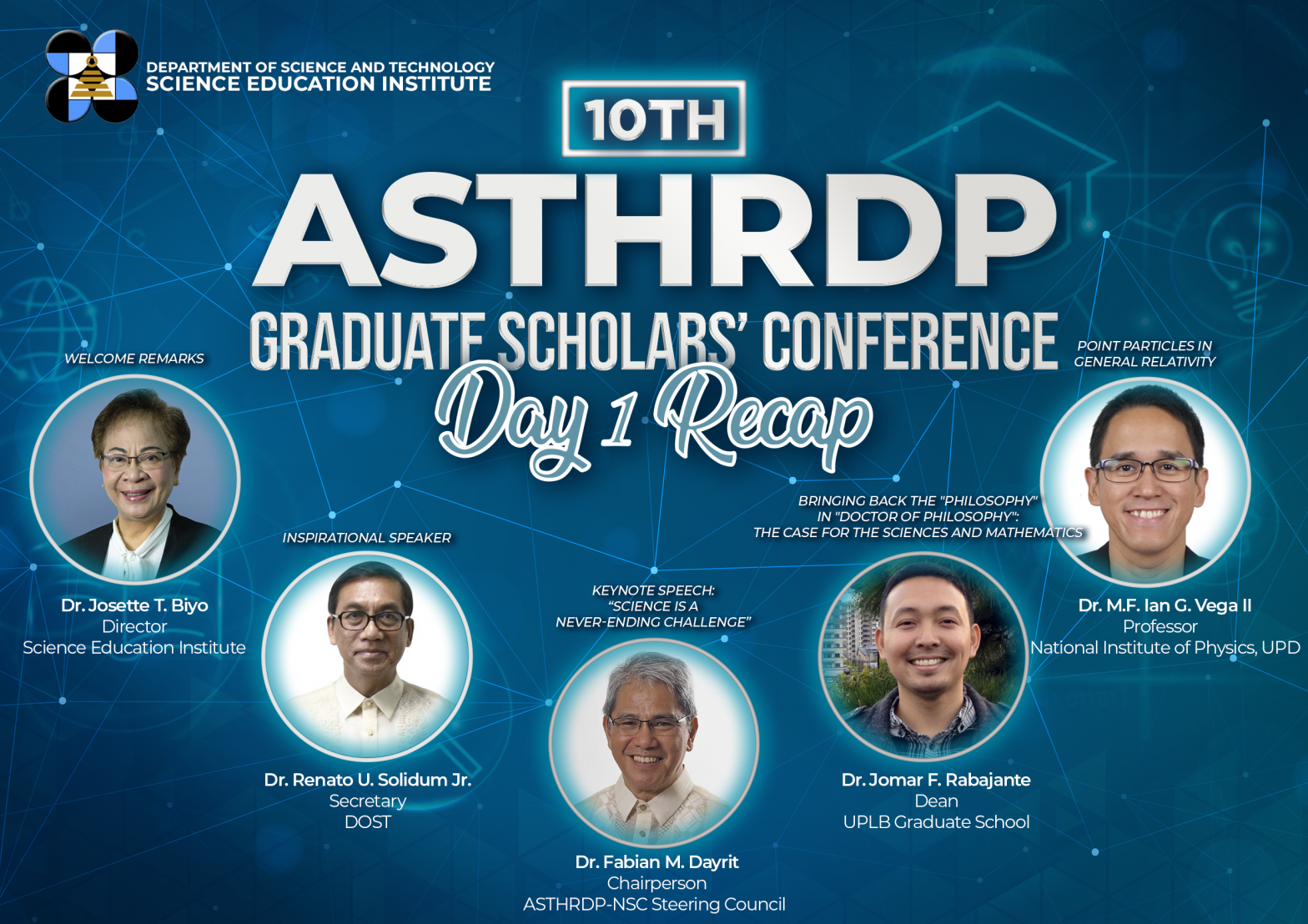
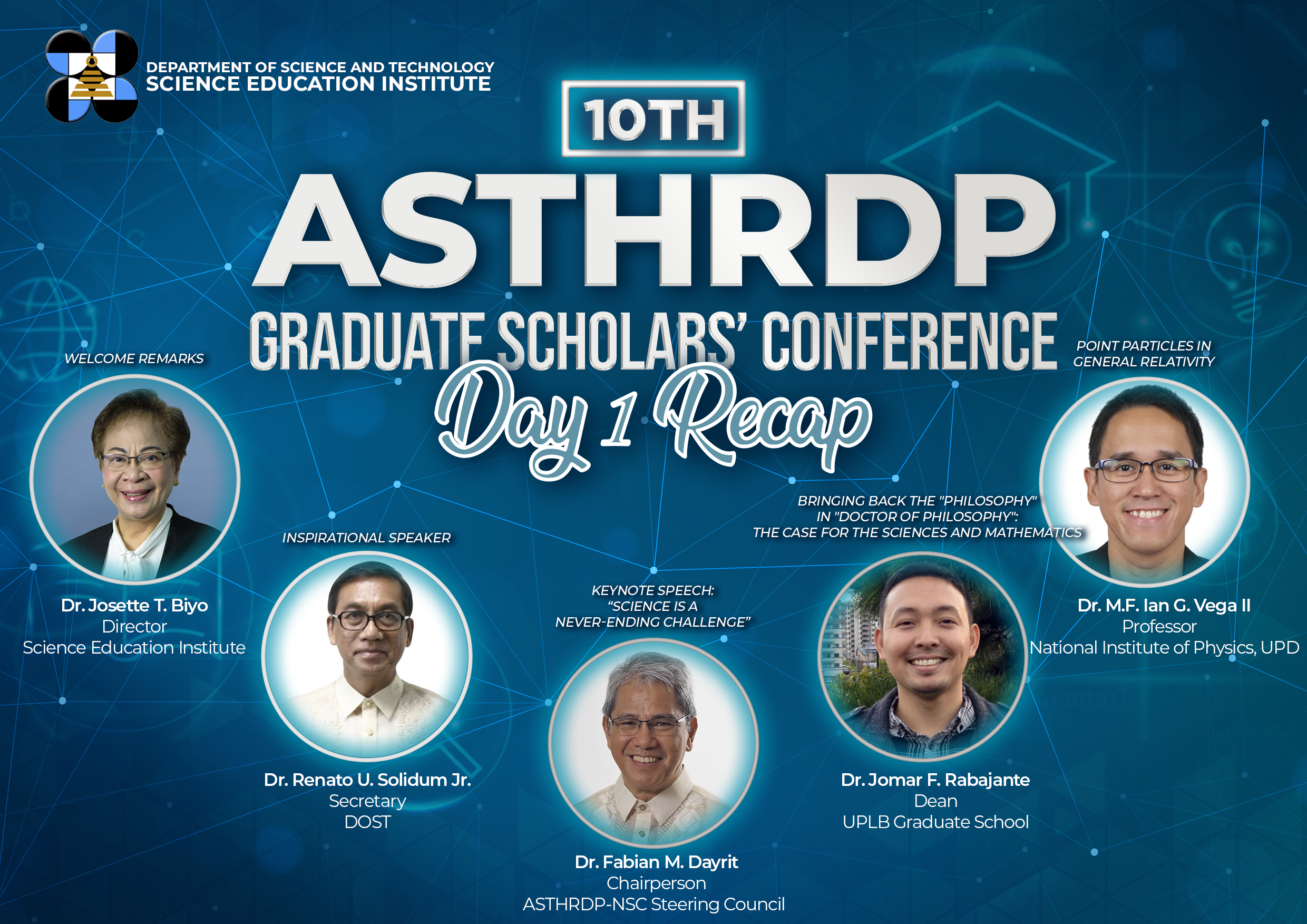
A Summary of the Proceedings of the 10th ASTHRDP Conference: Day 1
The first day of the conference opened with welcoming remarks from DOST-SEI Director Josette T. Biyo, who touched on the event’s theme, “ASTHRDP: 10 Years of Sustaining Excellence,” by underscoring the continued excellence of the ASTHRDP’s scholars through the years even despite the pandemic: “They always go the extra mile, and this event proves that,” she said. Citing in-house survey data, she pointed out that in the years 2015 to 2018 alone, the number of R&D personnel jumped 200% from 25,000 to 75,000. And despite setbacks from the pandemic, the country’s research community has continued to grow and thrive largely because of initiatives like the ASTHRDP.
The opening was also graced by the presence of DOST Sec. Renato Solidum Jr., who praised the ASTHRDP scholars for persevering through and overcoming the challenges of the pandemic for the greater good. “We need your expertise to move forward and pursue research, not just for academic reasons but for the value it can bring to mankind… Maraming salamat!” Solidum said in praise of the scholars.
For his keynote address, “Science is a Never-Ending Challenge,” ASTHRDP-NSC Steering Council Chair Dr. Fabian M. Dayrit congratulated the ASTHRDP scholars for their key role in building up the Philippines’ research capability. He pointed out that, to date, the ASTHRDP accounts for some 50% of the country’s graduate scholars, comprised mostly of MS degrees but with an ongoing effort to increase the country’s PhD scholars as well. Further in his talk, Dr. Dayrit doubled back on the unprecedented challenges of recent years by exhorting the audience to always remember that provisionality and adaptation are fundamental to the practice of science. Moreover, he noted the importance of scientists and researchers in confronting the challenges of our time, from biodiversity protection and climate change mitigation to overpopulation and food security. A cooperative and multidisciplinal approach is essential, according to Dr. Dayrit: “Any one science cannot do it alone. We should stop working in silos,” he advised.
In the first plenary session of the day, UPLB Graduate School Dean Dr. Jomar Rabajante gave an overview of the growth of mathematics from ancient times through to the twenty-first century, and what this growth of ideas has to teach today’s researchers in a post-truth and post-pandemic world. His talk, “Bringing back the ‘Philosophy’ in ‘Doctor of Philosophy’” touched on the paradigm shifts that have changed the way science is understood and pursued. Citing philosopher Karl Popper’s notion of falsification, Dr. Rabajante stressed the importance of continually testing established ideas. “Science is dynamic and we can continuously innovate and grow as human beings,” he said. “Testing is part of our job as scientists. But we must also teach, not just how and when but also why – in other words, the philosophy behind the science.” In the Q&A session that followed, when asked about how best to improve public appreciation of science, Dr. Rabajante pointed to the need for early education: “We should train people to know what’s scientific and non-scientific. Gawin natin sa simula. Sa elementary and high school pa lamang, doon ang laban,” he said.
The second plenary talk, delivered by NIP Prof. Dr. M. F. Ian G. Vega II was titled, “Point particles in general relativity.” Vega talked about how Einstein’s relativity led to the discovery and eventual visualization of black holes. The Nobel Prizewinning discoveries of recent years would not have been possible, according to Vega, without the collaborative efforts of multiple researchers from around the world over many decades. “Modern advances have brought us to a new golden age in physics, but there are still a lot of problems that still need to be addressed,” he mused. Reiterating ideas raised in previous talks, Vega said that collaboration and dedication to research are essential to the growth of human knowledge. “There’s something to be said of the bravery of experimentalists who are willing to undertake these experiments over a very long time, because these are the kinds of experiments that often bring surprising results,” he explained.
The plenary talks were capped by a brief photo session, followed by the presentation of ASTHRDP scholars’ work in simultaneous oral and poster breakout sessions in the afternoon.
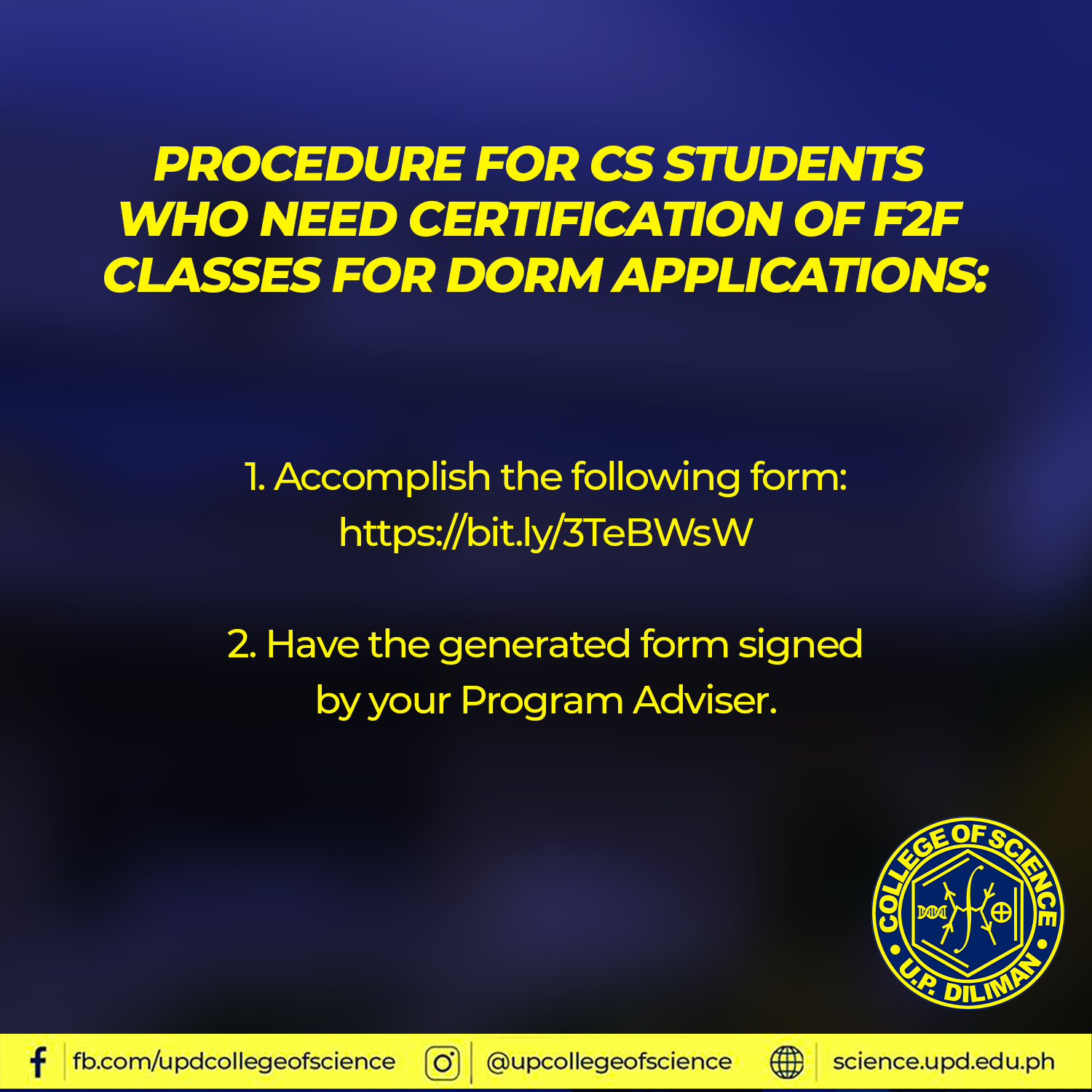
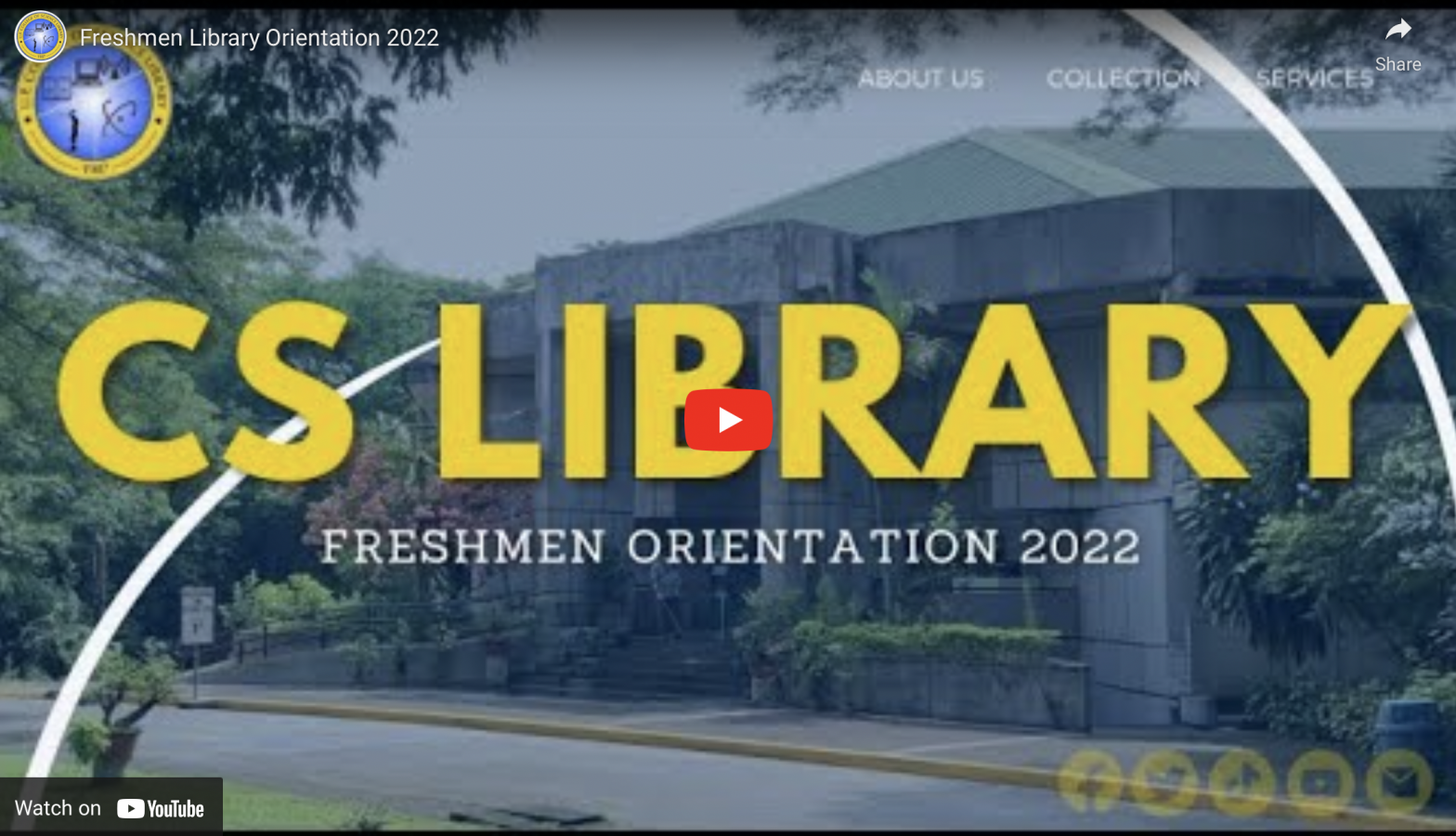
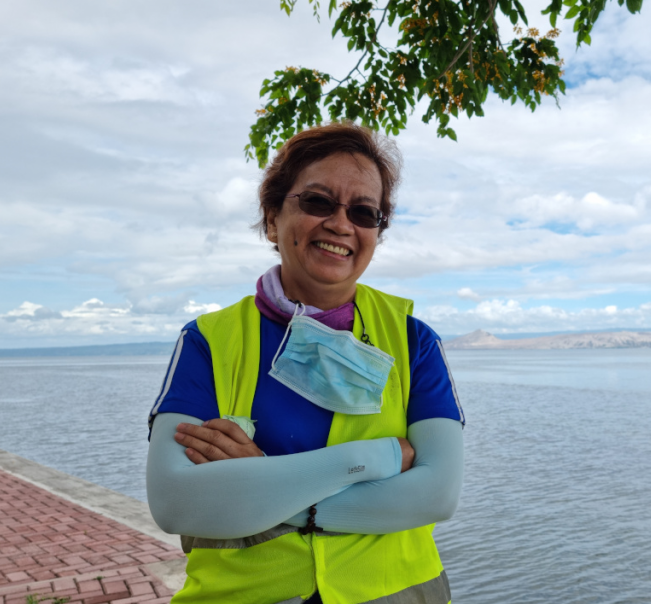
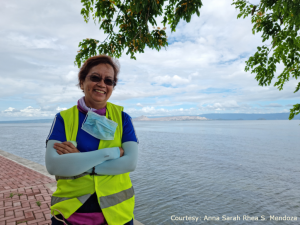
Maria Ines Rosana D. Balangue-Tarriela, Ph.D., or Ma’am Sanna and the unofficial “Nanay ng NIGS,” sadly joined our beloved creator last August 8, 2022. Her commanding yet comforting presence, her uplifting and warm attitude, and her motherly aura were remembered by her former students, colleagues, mentees, and more people who she has helped or inspired.
Maam Sanna as a Mentor
“Bakit ako susuko, hindi pa nga ako sinusukuan ni Ma’am Sanna“
Dana Sarmiento, University Research Associate, heard this from one of the students in their laboratory and it really resonated with her. For her, Maam Sanna consistently inspires people to keep going and to push harder in academics and in life–that is how passionate she is to geology and her students. Outside the classroom, Dana mentioned they would have late-night meetings with Maam Sanna to discuss their research, field work requirements, and climb mountains. “That is how much she cares. Dr. Tarriela made a huge impact on the field of geology and on the lives of the people around her,” she added.
Maam Sanna as a motherly figure
“Iba magmahal ang isang Ma’am Sanna”
Anna Sarah Rhea S. Mendoza, NIGS instructor, lovingly mentioned that Ma’am Sanna was a “mother she never knew she needed.” As her former student, Anna remembered how Maam Sanna would go far and beyond to always make her discussion interesting and engaging. She also received important advice from Maam Sanna that made her studies in geology bearable. As a colleague, Anna mentioned that her love and dedication to her profession have inspired countless colleagues and students like her to pursue what we love to do. “She would always say to us words of encouragement like ‘huwag kayo bibitaw‘ and ‘walang susuko’, just like how a mother would say to her children. One of her strengths and admirable qualities is her ability to give hope when there seems to be none.” she added.
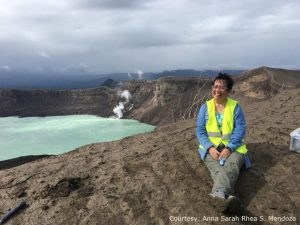 Maam Sanna and NIGS
Maam Sanna and NIGS
Aside from being an associate professor, Maam Sanna was pursuing research angled in geothermics, hydrothermal geochemistry and economic geology. Her early studies were crucial in developing models and regulations that helped in promoting sustainability of natural resources.
Beyond her institutional duties as a professor and scientist, Maam Sanna was well remembered in NIGS as someone who was willing to extend help in times of crisis. During the COVID-19 lockdown, she facilitated the solicitation of and managed the funds generated from donations, and distributed these to the needy NIGS constituents, whether for their internet requirements for online classes, or even for the most basic necessities like food and shelter.
It is indeed unfortunate to lose a significant figure who has contributed in shaping NIGS as a national institute. She will surely be remembered by her students, co-authors, co-teachers and all the people whose lives she touched in many ways. She will be remembered for embodying a loving mother and for being a thoughtful, helpful person. She will be remembered for a successful journey she had. Most of all, she will be remembered through the good values she has shared as the “Nanay ng NIGS.”
